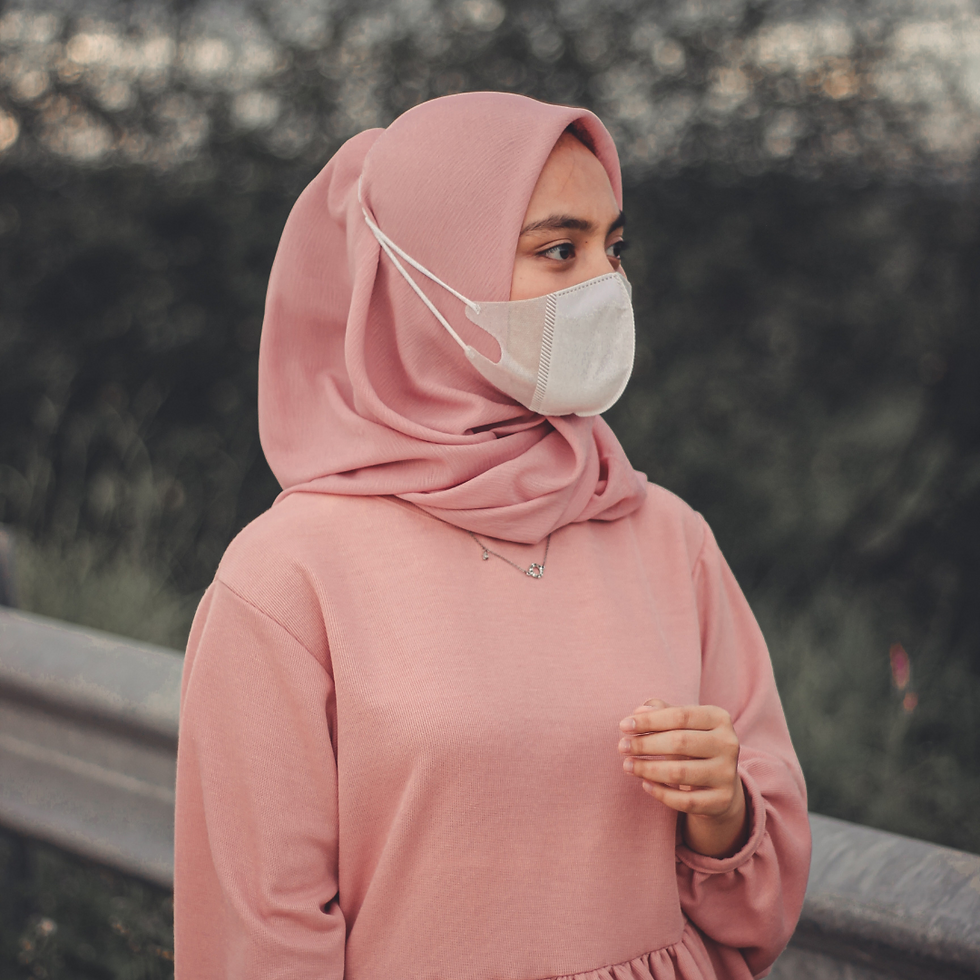
It's March 2020, the World Health Organisation just called for governments and industries to increase production of personal protective equipment (PPE). Prices surged and rapidly depleting supplies were sold to the highest bidder. Who came to the rescue? Who played their part?
The fashion and design industries were among the first to pull together resources and make huge contributions to the global relief effort, despite being heavily impacted themselves due to the devastating economic impact.
Runway shows were cancelled, stores worldwide had to close and global supply chains were heavily disrupted. Much of the fashion industry had been rendered shut by the coronavirus pandemic, however, designers, luxury labels, and fashion conglomerates stepped up during this critical time to give back to their communities; producing masks, PPE, and donating to some of the hardest-hit countries.
Inspiring stories:
Ralph Lauren
During the pandemic, The Ralph Lauren Corporate Foundation made an amazing donation of $10 million to aid the battle against the coronavirus crisis. The American fashion house’s contribution went towards many different causes relating to the coronavirus crisis including; contributing to the World Health Organisation Covid-19 Solidarity Response Fund; providing grants for Emergency Assistance Foundation for all Ralph Lauren colleagues in need of help; supporting cancer patients during the tough time through their own Pink Pony Fund; supporting a fundraising initiative called A Common Thread, which supported American fashion designers that suffered financially due to Covid-19; and last but not least, producing 250,000 masks and 25,000 gowns.
In addition to this, the brand also made significant contributions to the Royal Marsden NHS Foundation Trust, which is a cancer centre situated in London.
Burberry
The British Fashion House helped fight against the global pandemic in numerous ways, the first being its use of its Yorkshire factory, which usually manufactures the iconic Burberry trench coat. The factory was used to produce and supply masks and hospital gowns for the NHS. Moreover, Burberry made multiple financial donations, including to the University of Oxford’s vaccine research and to two charities that fight against food poverty.
Chanel
Chanel donated to many non-profit organisations in France, Italy, the UK, China and South Korea, specialising in medical relief, health care support, support for frontline workers, as well as organisations that support the most vulnerable people in hard-hit communities. Specific to the French fashion house, Chanel also utilised its supply chain to produce desperately needed face masks and hospital gowns for hospital and health workers in France.
The Chanel Foundation worked with over 80 not-for-profit partners in the U.S. and worldwide to deliver sustained support to hundreds of thousands of women and girls whom had been most affected by the pandemic. Chanel donated £1 million to support the crisis in the UK; this included donations to The National Emergencies Trust, local charities nominated by Chanel employees and to fund the supply of personal protective equipment (PPE) for frontline community workers.
Prada
During the battle against Covid-19, the Italian fashion house donated two entire intensive care and rehabilitation units each to three of the biggest hospitals in Milan, the San Raffaele Hospital, the Sacco Hospital and the Vittore Buzzi Hospital, which is a children's hospital. In addition to this, Prada produced over 110,000 medical masks which were distributed to healthcare workers and 80,000 medical gowns.
LVMH
LVMH, the parent of Dior, Givenchy, and Louis Vuitton, transformed all of its production facilities responsible for producing make-up, beauty products, and fragrance, to produce desperately needed hand sanitiser, to protect local and world-wide communities. All of the hand sanitiser produced was donated to French hospitals free of charge. Louis Vuitton opened 12 of its 16 leather goods production factories in France, which produced over 200,000 masks, which was also donated to frontline health workers.
The fashion industries quick response to the pandemic revealed the lack of structure and the existing flaws in PPE production and local textile manufacturing. However, it also enlightens an opportunity for regrowth. The Emergency Designer Network mobilised furloughed fashion workers to help create and produce medical workwear for local hospitals and communities. This simple process shows the capacity and power companies have to help and change procedures when needed. However, as store closures point to an uncertain future for high streets and factories, switching to essential products like PPE could balance the negative impacts, introducing textile production further and providing a more stable income stream for brands and companies in the future.
Comments